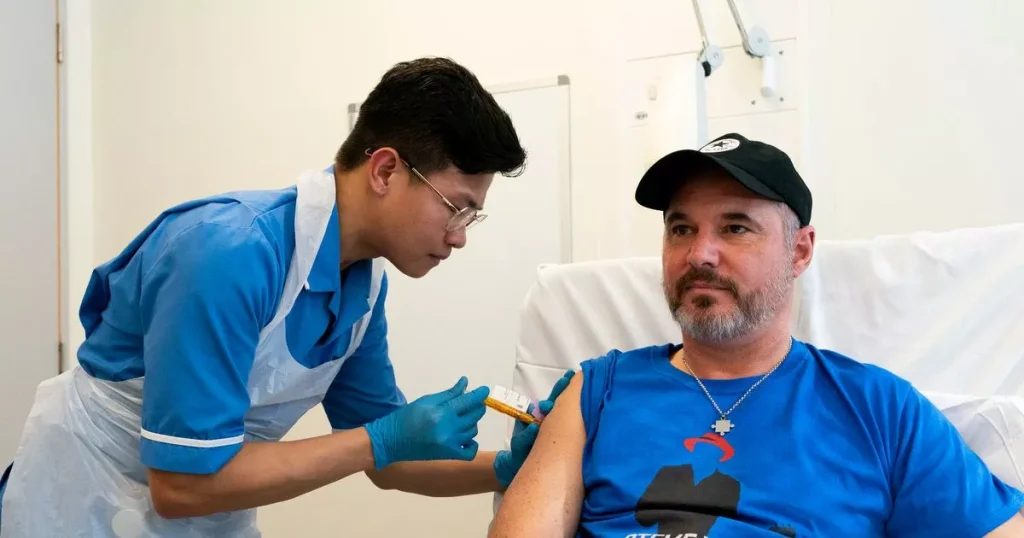A groundbreaking jab for cancer patients in the UK has shown potential to prevent skin cancer from recurring. The jab, personalized for each patient, uses mRNA technology to instruct the immune system to identify and kill cancer cells. The experimental treatment has shown promising results in a phase-two trial, improving survival rates in melanoma patients and potentially stopping cancer from returning. A phase-three trial is now underway to further evaluate the jab’s efficacy and potential to cure melanoma. Dr. Heather Shaw, a key figure in the trial, described the treatment as a finely tuned tool with the potential to be a game-changer in immunotherapy.
The jab, known as individualized neoantigen therapy, targets specific tumor neoantigens expressed by tumors. By generating a custom jab based on the unique mutations in a patient’s cancer, the treatment aims to activate an anti-tumor immune response. DNA sequencing and artificial intelligence are used in the creation of the jab, with the goal of eradicating all cancer cells, even those not detectable by scans. The phase-three global trial will enroll a wider range of patients, aiming to recruit around 1,100 individuals across multiple centers in the UK. The combination of the jab with immunotherapy treatment Keytruda has shown promising results, with the potential to extend to other types of cancer, such as lung, bladder, and kidney cancers.
Steve Young, one of the first patients on the trial at University College London Hospital, shared his experience of being diagnosed with melanoma after a decade of having a bump on his head. The diagnosis came as a shock, prompting him to participate in the trial to explore the novel treatment. The jab works by utilizing mRNA technology to trigger an immune response that produces antibodies targeting cancer cells, marking them for destruction. This innovative approach to cancer therapy has sparked excitement among researchers and clinicians, with hopes of extending the treatment to other cancer types beyond melanoma.
The personalized jab offers optimism for patients like Steve, who are seeking effective treatments for melanoma and other types of cancer. The mRNA technology used in the jab represents a significant advancement in cancer immunotherapy, with the potential to revolutionize cancer treatment in the future. The combination of the jab with existing immunotherapy treatments has shown promising results in improving survival rates and preventing cancer recurrence. The ongoing phase-three trial will provide further insights into the jab’s effectiveness and its ability to cure melanoma, offering hope to patients and clinicians alike.
The development of this personalized cancer jab marks a significant milestone in cancer research and treatment in the UK. The innovative approach of customizing the treatment for each patient based on their unique cancer mutations showcases the potential of precision medicine in oncology. The collaboration between pharmaceutical companies and medical institutions in conducting clinical trials highlights the dedication of researchers to advance cancer therapies. With promising results and ongoing evaluations, the future of cancer treatment may be transformed by this groundbreaking jab, offering new possibilities for patients with melanoma and other types of cancer.














